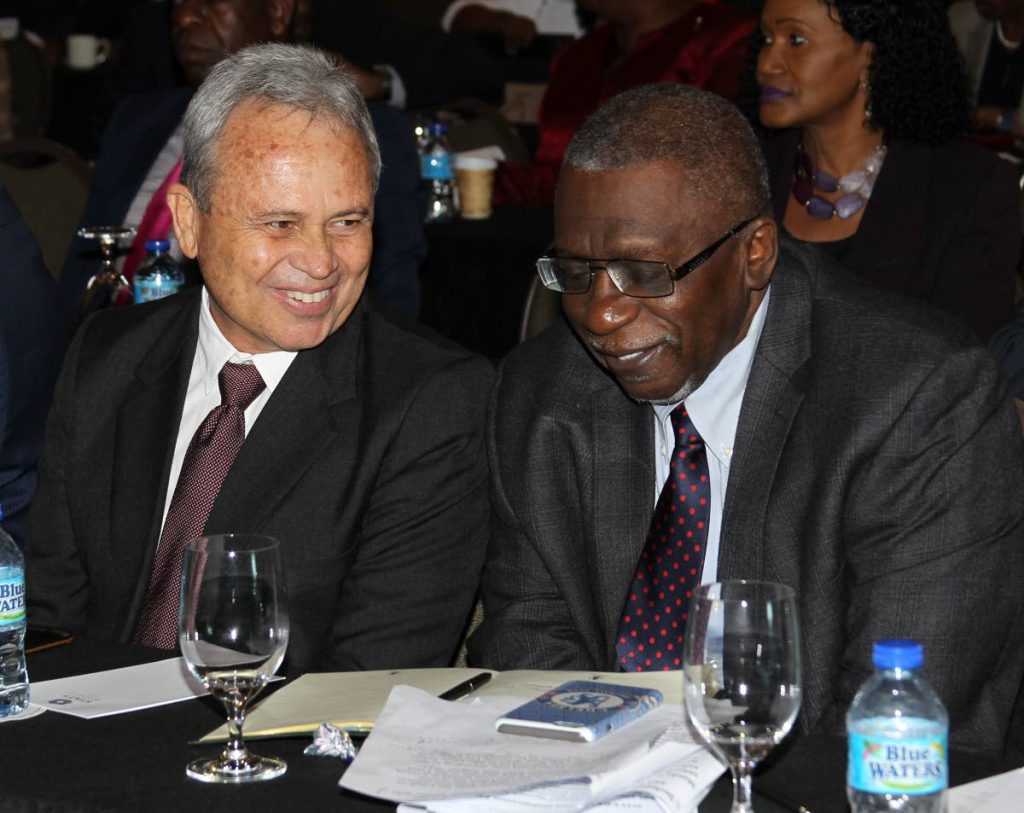Govt must be strict

Depleting oil and gas revenues, an exorbitant fiscal deficit, high crime, rising unemployment.
These are the realities against which the 2017/2018 budget will be read, tomorrow, at the International Waterfront Complex, Port-of-Spain.
And, with growing hopelessness among many citizens - the fallout from widespread retrenchment in both the public and private sectors within the past year - the focus will be on Finance Minister Colm Imbert, as he delivers the third fiscal package of the Dr Keith Rowley-led People’s National Movement (PNM) administration at 1 pm.
Senior economist Ronald Ramkissoon yesterday said the dire economic circumstances demand that strict measures be implemented to put the country on a growth path.
“There is no doubt that adjustment is critical and that bolder, stronger adjustment measures should have been taken already given what we are likely to find in respect of the revenue side for this economy,” he told Sunday Newsday.
“We have to learn to deal as a household, as a country, with lower expenditure because our revenue side is significantly affected.”
Alluding to the Prime Minister’s revelation, during the Spotlight on the Economy conference on Wednesday, that there was an 90 per cent decline in revenue, Ramkissoon said: “That should speak to the kinds of adjustments that have to be made on the expenditure side.”
He said initiatives also must be implemented with respect to revenue collection.
“Hopefully, we will see some of the measures to address the revenue side but they become more and more difficult as the economy contracts but in any case it is better late than never.”
Regarding the adjustment side, Ramkissoon said attention must be paid to increasing revenue for workers who have either lost their jobs or do not expect to get increases.
The former Republic Bank senior economist said: “He or she has to look at what other skills they have that can help supplement their income. In the same way, the country, itself, has to address the question of assets that we have not paid attention to that can give us some growth because we now have to be in transition mode.
“We have to transition this economy from what we have been accustomed to to the new economy where we want to see what assets we have that can now, if we address it properly, can help replace some of the lost income from the energy sector.” Ramkissoon, a member of the Economic Development Advisory Board, singled out the creative industry as an example.
“The kinds of skills and talents that we have boasted about all the years but we have not explored in pan, calypso, chutney. We have to move beyond the stage of talk to one of implementation as part of that transition to new growth areas.”
Ramkissoon said other areas which can have an impact include the agro-processing and cocoa sectors.
Saying there must be a conversation about truly transforming the economy, Ramkissoon said: “That is going to help generate hope, acknowledging it is not only about job losses but equipping ourselves for new jobs and new areas of revenue for the government as new businesses begin to grow.”
He said private investment, domestic or foreign, was critical in this regard “to explore areas we have not explored before.”
“The trick is unlocking those sectors, those sleeping giants, to transform this economy.”
Political commentator Dr Winford James anticipates Government will present a formula to preserve jobs, particularly within the public sector. He observed this has been Government’s mantra for the past year.
“That was, in fact, the arrangement that was confirmed by the NTAC (National Tripartite Advisory Committee) and the labour movement was happy to have the Government commit to not retrenching people. I imagine that commitment also relates to contract workers.”
James said despite recent reports of a small increase in the price of oil to around US$52 a barrel, “that has not been constant but erratic.”
“So, the Government has been able to keep people in their jobs, their being the biggest employer in the country. I think we are going to see more of that tomorrow.”
Although he does not believe the citizenry will be overburdened by new taxes, James predicted the budget will also present “some definitive decision” on the property tax, which has not been in effect since 2009.
“I think we will get more clear-cut, more definite proposals with respect to that,” said James, senior lecturer, Department of Education, University of the West Indies, St Augustine.
“It is not to be regarded as a new tax except, of course, in the payment. But the idea of it being accepted as policy by Government is already known.”
Like Ramkissoon, James also expects to hear a statement about economic diversification, to which lip-service has been paid for years.
“I think the Government also has been eyeing different revenue streams and those revenue streams have to be outside of the energy sector.” Government, he suspects, will curtail its development programme.
“I think every ministry and the THA will experience more development cuts in deference to the need to keep people in their jobs having regard to our income streams not improving given the slow improvements in the price of oil and gas that we have been depending on for so long.”
James also believes measures will be implemented to protect the most vulnerable in society.
“With the rising cost of living, the fixness of salaries for people like retirees, maybe we are going to see some action in that regard.”
Another political commentator, Rhoda Bharath, said Rowley and Imbert last Wednesday presented a ten-year overview of the economy.
She said Imbert now has to “get down to brass tacks” and explain how the Government is going to avoid devaluation while generating revenue and jump-starting growth.
“He needs to be frank. The measures need to be drastic and we (citizens) need to be prepared,” said Bharath.


Comments
"Govt must be strict"